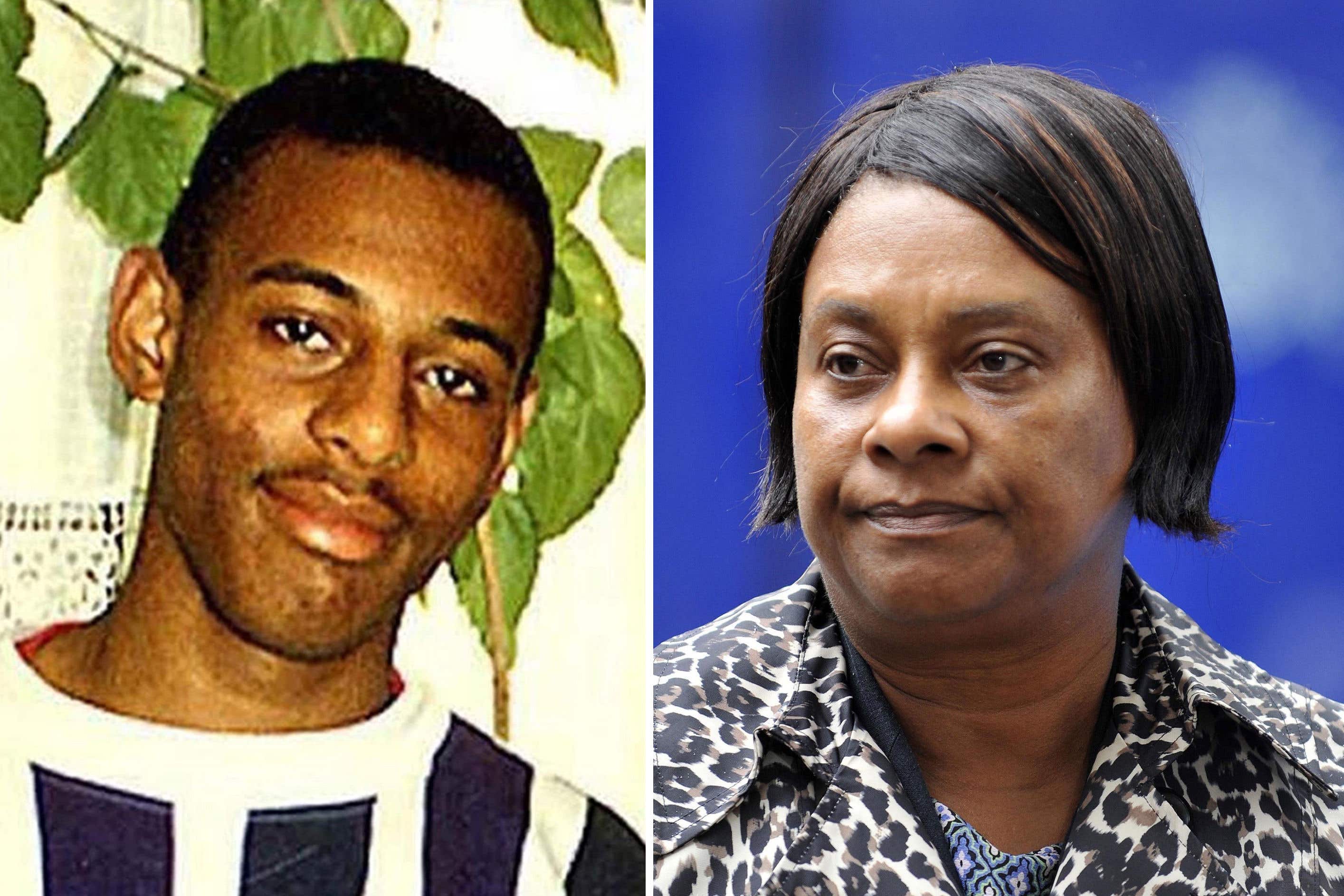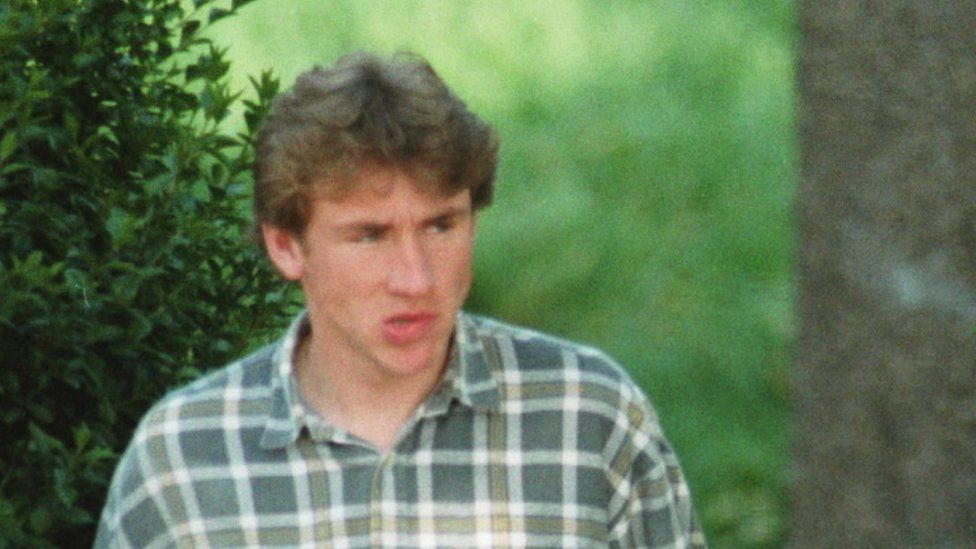Doreen Lawrence’s fury as new suspect in Stephen Lawrence murder named for first time
Matthew White, 50, who died in 2021, allegedly told police he had been at scene of murder but officers failed to properly investigate
Your support helps us to tell the story
From reproductive rights to climate change to Big Tech, The Independent is on the ground when the story is developing. Whether it's investigating the financials of Elon Musk's pro-Trump PAC or producing our latest documentary, 'The A Word', which shines a light on the American women fighting for reproductive rights, we know how important it is to parse out the facts from the messaging.
At such a critical moment in US history, we need reporters on the ground. Your donation allows us to keep sending journalists to speak to both sides of the story.
The Independent is trusted by Americans across the entire political spectrum. And unlike many other quality news outlets, we choose not to lock Americans out of our reporting and analysis with paywalls. We believe quality journalism should be available to everyone, paid for by those who can afford it.
Your support makes all the difference.A furious Baroness Doreen Lawrence has called for officers to be sacked after a new suspect was named in the murder of her son Stephen, 30 years after he was stabbed to death in the UK’s most notorious racist killing.
The Metropolitan Police has named Matthew White as a suspect in the case, two years after he died, aged 50, in 2021.
He first came to police attention as a witness in 1993 and was first publicly named in 2011 during the trials of two men who were convicted of the teenager’s murder but the force has been accused of failing to properly investigate him.
White was arrested and interviewed in March 2000 and in December 2013 but the Met reportedly seriously mishandled inquiries related to him. The force has now apologised.
In a statement issued after White was named, Baroness Lawrence said there should be “serious sanctions” against the officers who failed to investigate him.
"Only when police officers lose their jobs can the public have confidence that failure and incompetence will not be tolerated and that change will happen," she said.
A file on White was submitted to prosecutors in May 2005 and October 2014, but the Crown Prosecution Service said there was no prospect of a conviction for any offence on both occasions.
Apologising for its handling of inquiries into White, Matt Ward, deputy assistant commissioner at the Met, said: “The impact of the racist murder of Stephen Lawrence and subsequent inquiries continues to be felt throughout policing.”
“Unfortunately, too many mistakes were made in the initial investigation and the impact of them continues to be seen.
“On the 30th anniversary of Stephen’s murder, Commissioner Sir Mark Rowley apologised for our failings and I repeat that apology today.”
Baroness Lawrence went on to say that she hoped no other victims had to go through what she and her family had.
“The latest revelation that a key suspect in the murder could have, and should have, been properly and thoroughly investigated is shocking but unsurprising,” she said.
"What is infuriating about this latest revelation is that the man who is said to have led the murderous attack on my son has evaded justice because of police failures and yet not a single police officer has faced or will ever face action.
"It should not have taken a journalist to do the job that a huge, highly resourced institution should have done."
On 22 April 1993, 18-year-old Stephen Lawrence, an inspiring architect, was attacked by a pack of white, racist youths as he waited at a bus stop with a friend in Eltham, southeast London.
He was attacked with a knife and got 100 metres along the road away from his attackers before he collapsed, bleeding from two stab wounds that proved fatal.

The bungled original investigation was hampered by racism and alleged police corruption, meaning it took nearly 20 years for two of the 18-year-old’s killers to be brought to justice, with three named suspects never prosecuted.
It prompted a landmark public inquiry, which concluded that the Met was institutionally racist and that a number of errors were made by detectives working on the case.
Five prime suspects became widely known after the murder, but the public inquiry said there were "five or six" attackers present at the scene where Lawrence was killed.
David Norris and Gary Dobson were given life sentences for the murder in 2012. The other three, Luke Knight and brothers Neil and Jamie Acourt, have not been convicted of the crime.
Knight has remained free while the court brothers have since served prison sentences for drug dealing.
The Met Police has consistently said there were six attackers, as Duwayne Brooks, who was at the bus stop with Lawrence, said there was on the night.
The Met Police took the unprecedented decision of naming White as a suspect following an investigation by the BBC, which said the force seriously mishandled inquiries relating to him.
Witnesses had said White told them he had been present during the attack, that evidence showed his alibi was false and that police surveillance photos of him showed a resemblance to eyewitness accounts of an unidentified fair-haired attacker, the BBC said.

One of the witnesses was White’s stepfather had told police his stepson may not have told detectives all he knew.
The BBC added that the new evidence further implicates the three prime suspects in the case who are still alive.
Following the 2012 convictions, trial judge Mr Justice Treacy said: "On the evidence before the court, there are still three or four other killers of Stephen Lawrence at large."
White was first brought up in the investigation in May 1993 when he told officers he had visited the homes of two other suspects on the night of the murder, Scotland Yard said.
He was seen by police officers when he refused to attend the Stephen Lawrence Inquiry before being re-interviewed during the post-inquiry investigation.
Between March and April 2000 White was arrested and interviewed under caution after new information was received from a new witness but denied any involvement in the murder.
In May 2005, prosecutors advised that there was no realistic prospect of conviction of White for any offence.
Following the convictions of Norris and Dobson, a seven-year post-conviction investigation was launched.
In 2013 it was discovered that a Met officer who was not involved in the investigation team sent a message about a relative of White who may hold information in 1993.
The relative was not named and was misidentified in what the Met has called a “significant and regrettable error”.
It was not until 2012 that the relative was correctly identified and new information was obtained.
The Met said White was arrested for a second time in December 2013 based on the new information but in October 2014 a further CPS advice file found that no further action should be taken.
In February 2020, White was seen and spoken to again but there was insufficient witness or forensic evidence to progress any further before he died in August 2021.
The Independent Office for Police Conduct (IOPC) announced in 2020 that, following an investigation launched in 2014, they had submitted a file of evidence to the CPS to consider whether four former police officers who were in senior roles at various times during the opening weeks of the murder investigation may have committed criminal offences of misconduct in public office.
In May 2023, the Met commissioned a routine forensic review of key exhibits to consider whether new scientific processes may advance the case.
Dr Neville Lawrence, Stephen’s father, said any further police inquiry should not be carried out by the Met. “They must be able to find a decent police force who could investigate,” he said.



